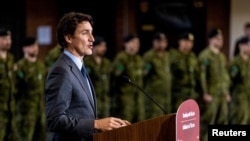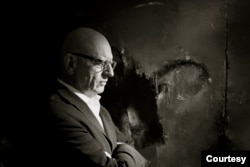More information is coming out regarding China’s attempts to influence the past two Canadian elections. Pressure is building for the government of Prime Minister Justin Trudeau to launch an independent investigation.
The most recent revelations indicate Canadian security officials repeatedly warned the Liberal government of Prime Minister Justin Trudeau that the Chinese government was making concerted efforts to influence the 2019 and 2021 general elections in his favor.
The latest information is emerging from intelligence reports uncovered by The Globe and Mail newspaper and Global Television.
Beijing has strongly denied all the allegations, calling them "purely baseless and defamatory.” Trudeau has downplayed them by saying it is nothing new that foreign governments try to interfere with Canada.
Canadian intelligence says that it found no major foreign election interference in those two elections but an investigation into Chinese influence is underway.
Former government officials are joining opposition parties calling for Trudeau to create an independent inquiry.
One of them is Jean-Pierre Kingsley, who served as Canada’s chief electoral officer from 1990 to 2007, and who says that the current House of Commons committee investigating the revelations will not give an independent review of the issue.
“Where are you trying to get to the basic facts? Whether it favors one part or disfavors another is of no consequence if it's an independent inquiry. And this is beyond the scope of a parliamentary committee, to be honest with you,” Kingsley said.
The uncovered documents, originating with the Canadian Security Intelligence Service, Canada’s spy agency, reportedly say China was pressuring its consulates to leverage Chinese community members and associations in Canada to help elect Trudeau. They then covered up any links to the Chinese government. However, Beijing wanted to keep Trudeau’s power in check by having him win only a minority government, which happened.
They also say that China developed disinformation campaigns in Vancouver and Toronto against specific candidates it did not like. Both cities have large immigrant communities from China.
Vancouver-based political scientist Stewart Prest says allegations of China trying to cultivate Canadian political candidates is not new, but the recent revelations are disconcerting.
“I think this is the latest indication, and perhaps the clearest indication yet, that this is an issue that ought to be taken seriously," he said. "And really, as difficult as it is, something that needs to be dealt with in a nonpartisan way.”
Artur Wilczynski is a former director general of intelligence operations at the Communications Security Establishment, which provides the country with information technology security and foreign signals intelligence.
“There are a number of hostile foreign actors that have been engaged in this kind of activity," Wilczynski said. "And the People's Republic of China is by far the biggest threat.”
He says going forward, there also needs to be a transparent review of the activities of Canada's national security intelligence agencies as they relate to Canada’s future elections.
“I think that in order to restore confidence in Canada's democratic institutions — which I believe have been damaged by the disclosures and the debate around those disclosures — I think we do need to have conversations about, does Canada have the right instruments to mitigate the risk posed by foreign interference in our democratic systems?," Wilczynski said.
In the last election, Trudeau was successfully reelected, but only with a minority government, with 158 members of parliament in Canada’s 338-seat House of Commons.







